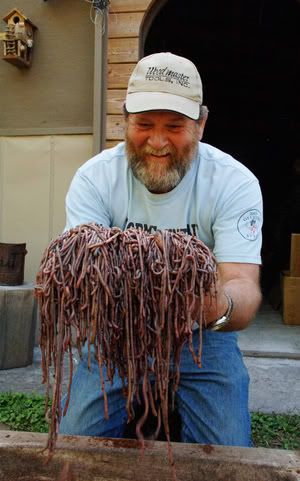
Jessica Palmer is an artist, scientist and writer. Her blog Bioephemera combines these three vocations to consistently excellent effect. Her current series on the sometimes fractious relationship between art and science (or, more precisely, between artists and scientists) is worth checking out. (Part 1 is here. Part 2 is here. More posts in the series will follow.)
As regular HH readers know, I believe that the human animal depends on wonder and awe for psychological sustenance. These complicated, overlapping emotions impel curiosity, creativity and reverence and, in my estimation, science and religion "(re)awaken or invigorate our capacity [to experience] wonder."
Unfortunately, many thoughtful contemporaries disagree, often vehemently. They worry that we're losing wonder, and they accuse science (they often call it "scientism") of demystifying experience. These thinkers fear that science elucidates so thorough an explanation of the material world that scientists (and, in turn, society at large) believe only in the observable and the quantifiable. Metaphysics and transcendentalism are thus relegated to the intellectual dustbin, realms traveled only by the deranged, the fey or the weak-minded.
This worry is unfounded. Wonder can't be extinguished by revealing "the workings" of observed phenomena. Quite to the contrary! Even the most Cartesian of scientific explanations enhances our conception of the material world. In turn, that advanced understanding enriches our imaginative experience of both the material and the metaphysical.
To this point, a blurb in a recent issue of National Wildlife magazine entitled "The Science Behind 'Worm Grunting'" explains the once mysterious cause-and-effect relationship manipulated by "grunting."
"As recently as the 1960s, hundreds of people in the southeastern United States earned a living through a curious practice known as 'worm grunting': driving a stake into the ground, then rubbing the stake with a long piece of steel in order to produce a sound that, for reasons unknown, would drive hundreds of earthworms to the surface where they could be collected for bait. Now biologist Ken Catania of Vanderbilt University has found an explanation for the technique’s efficacy. Without realizing it, worm grunters were imitating the sounds made by worm-hungry moles digging through the earth. By observing both earthworms’ reactions to grunting and their response to the presence of eastern American moles, Catania found that the invertebrates rapidly pop to the surface when they detect the presence of a mole—or a grunter."I've never gone grunting, but as a child of the southeastern United States, I've done my fair share of earthworm digging in preparation for afternoon pond fishing. I wish I'd known about grunting those years ago, and I'm very glad that I know about it now. I still fish every now and again, so I may yet have practical use for grunting. More importantly, I might also have occasion to educate children about grunting; a vital part of that teaching will be the astonishment the kids experience upon witnessing the worms' emergence. It ain't magic, but it's surefire enough to make this adult shake his head in believing disbelief. Another word for that? Wonder.
For more on grunting, check out this blog post.
Photo credit: Discovery blogs

4 comments:
I find it most interesting (unbelievable?) that someone or some group of people stumbled upon this technique with no understanding of how or why it should work.
Andiscandis:
Unbelievable? Andi, these are dumb country folk! They don't have the brain the good Lord gave an animal cracker!
Seriously, though, I think it's reasonable to assume that the name "grunting," created by the folks who employed the technique, indicates that worm grunters had a pretty good idea of what prompted the worm exodus. But science has a long history of poo-pooing parochial knowledge. Because such knowledge is based on unscientific observation, I understand why it shouldn't be considered science, but I also think that scientists would do well to consider the local explanations carefully.
In this case, I'd wager that they did. Dr. Catania is a mole specialist, after all, suggesting that his "discovery" was less accidental than the reporting makes it seem.
Huh.. I thought they called it grunting after the sound made by a hollerin' hillbilly after goin'hog-wild at hicksville's last hootnanny & hoedown.
You know...
nnnnggh, nggghgghh, nnnnnnghaaaa...
Post a Comment